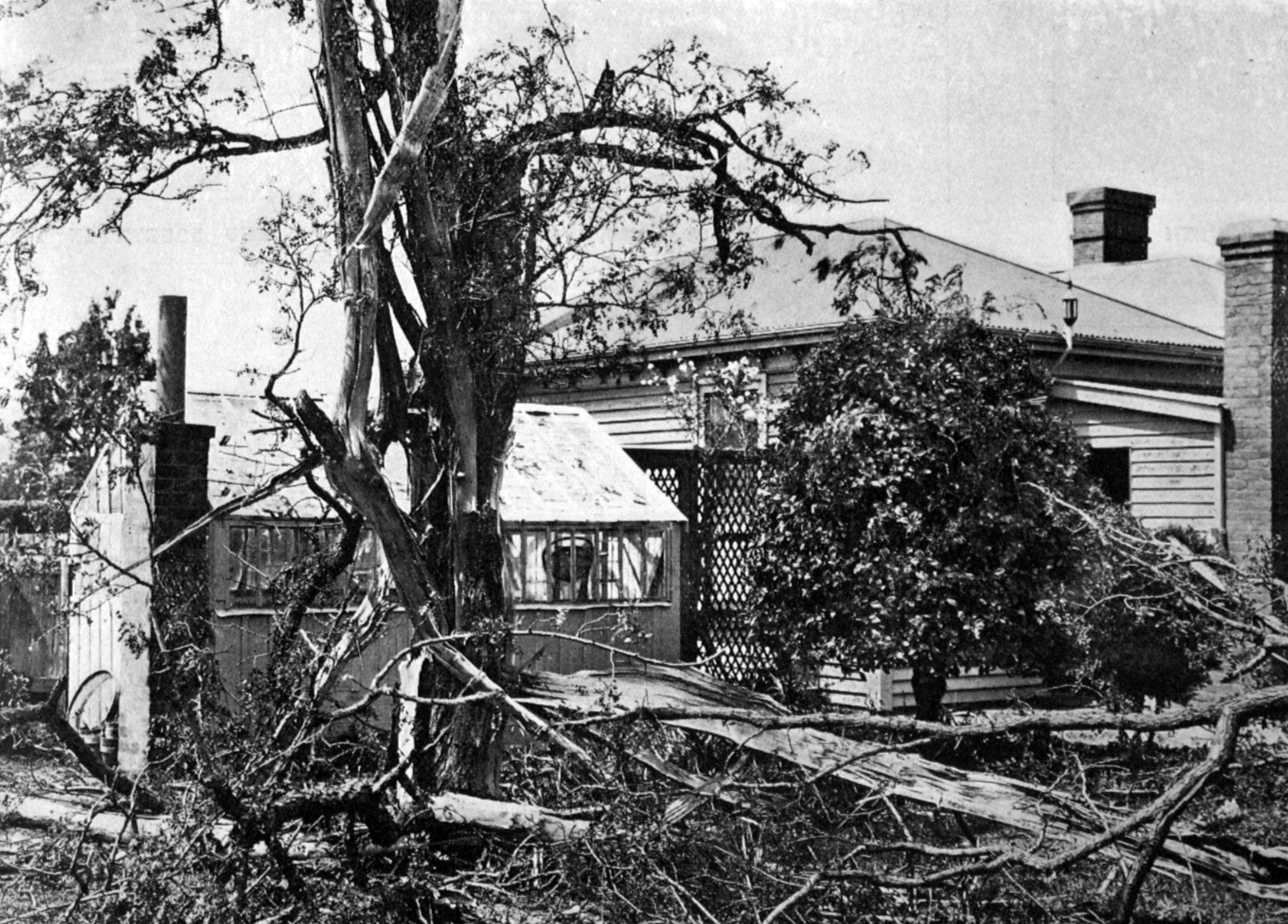
During the height of the storm, at 8.30pm an acacia tree in Kent street, Sydenham, was struck by lightning and split in halves. Lightning struck the corner of the roof of the residence of Mr M.J. Bailey, doing minor damage — smashing gas mantles and scattering articles on the shelves. The current passed along a clothes line from a tree to the workshop of Mr J.A. Hill’s residence, scorching the joists and leaving a jagged hole in the ground.

The ‘A’ word
If the Association of New Zealand Chambers of Commerce does not succeed in banishing the term "Australasia" (with the corresponding adjective) from the current vocabulary, the failure will not be due to any lack of elaboration in its plan of campaign. If we do not regard the subject quite so gravely as the mover of the resolution which was carried on Thursday, we recognise the inconvenience, commercial and general, attending the use of forms of reference which have come to carry a more or less equivocal connotation. At the same time it has to be admitted that the path of verbal reform is not clear of difficulties. Of course, the term "New Zealand" should be scrupulously employed when exclusive allusion is being made to this dominion and its products or other concerns. There ought not to be any danger of loss of identity in such cases. On the other hand, there are occasions when there is a joint or inclusive reference to Australia and New Zealand. In such instances "Australasia" and its adjective have done service for many a year; and a question arises as to how they are to be replaced if they are relegated to the limbo of discredited terminology. We may say at once that we should strongly object to the idea of adopting the consecrated word "Anzac" in a commercial or general sense. So far from "Anzac" being better than "Australasia" for such purposes, it is infinitely less desirable. Its inalienable significance must on no account be profaned. Nevertheless a suitable comprehensive term is required, and until it is found the directors would perhaps be well-advised to ask whether New Zealand, in getting rid of "Australasian," might not encounter a more embarrassing nuisance in the shape of "Australian." — editorial
Social questions, Sunday sport
The second session of the nineteenth synod of the Diocese of Dunedin was continued yesterday. Canon Nevill tabled a report expressing hearty approval of the Young Citizens’ League and other corresponding institutions, church people being urged to do all possible to help them. The following other features were contained in the report: Approval of the establishment of homes for the aged poor of the church and to brighten the lives of those at present in benevolent institutions; a request that the synod support every effort to make the League of Nations a practical influence in the dissemination of the gospel of peace and that the literature of the League be distributed as widely as possible; that the Government be petitioned to provide medical instruction for all school children above a certain age and to make it necessary, preliminary to any marriage, secular or religious, that a certificate of immunity from disease be forthcoming; that women patrols be restored; that the synod be asked to protest against any extension of sport on Sundays.
— ODT, 4.11.1922 (Compiled by Peter Dowden)












